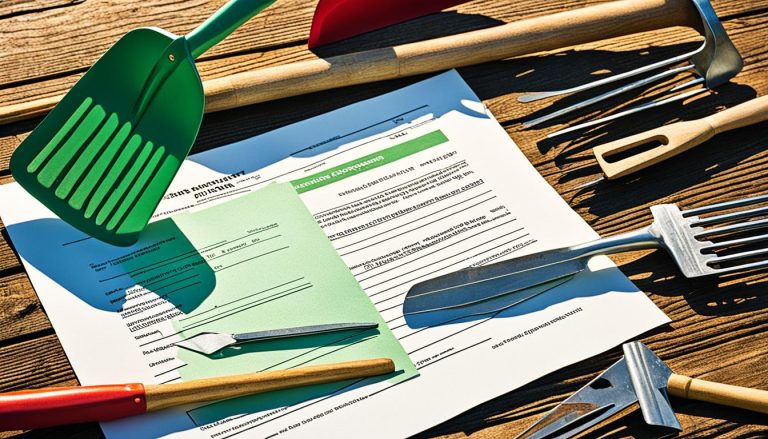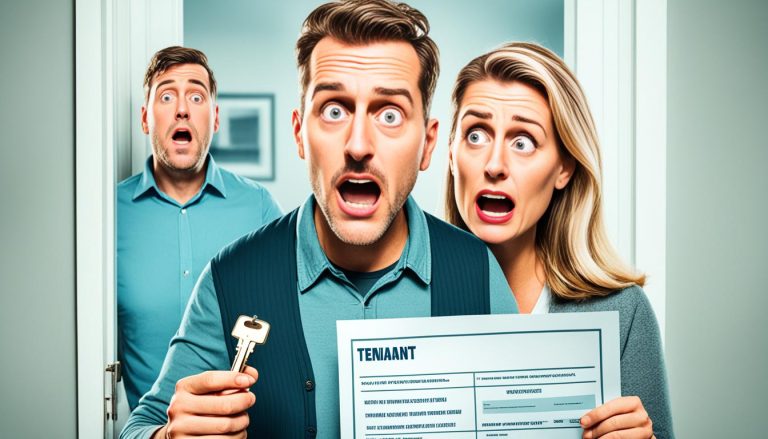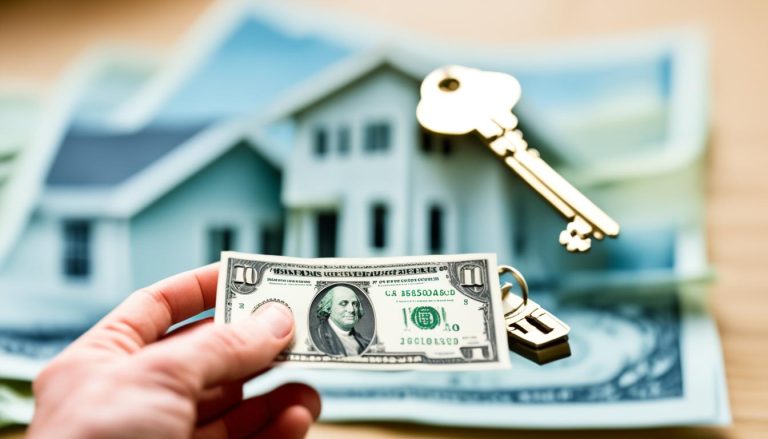In the UK, figuring out who pays the legal fees for forced house sale can get confusing. This is true whether you’re a homeowner at risk of losing your home or a lender looking to get back the money you’re owed. It’s key to know the rules and who’s responsible for these costs when a house is sold against the owner’s will in the UK.
Understanding Forced House Sales in the UK
In the UK, a forced house sale can happen when the owner can’t keep up with mortgage payments. It may also be due to other financial difficulties. The lender may then decide to sell the house to recover their money. It’s important for homeowners to know about this. They must understand how to handle legal processes involved in such sales.
What is a Forced House Sale?
A forced house sale is when the court orders a property to be sold. This is often requested by the mortgage lender. It takes place if the owner can’t pay the mortgage or faces other financial issues.
Common Reasons for Forced Property Sales
- Defaulted Mortgages: The top reason for forced sales is missed mortgage payments. The lender might start foreclosure if you fall behind. Then, the court may order the sale to cover the debt.
- Bankruptcy Proceedings: When someone declares bankruptcy, their property may be sold. This helps pay off creditors, including the mortgage lender.
- Secured Loan Defaults: Homeowners who fail to pay back secured loans might face a forced sale. The lender can sell the property to recover their money.
This can lead to extra expenses for the homeowner. They may face costs linked to missed mortgage payments, foreclosure, and secured loan defaults.
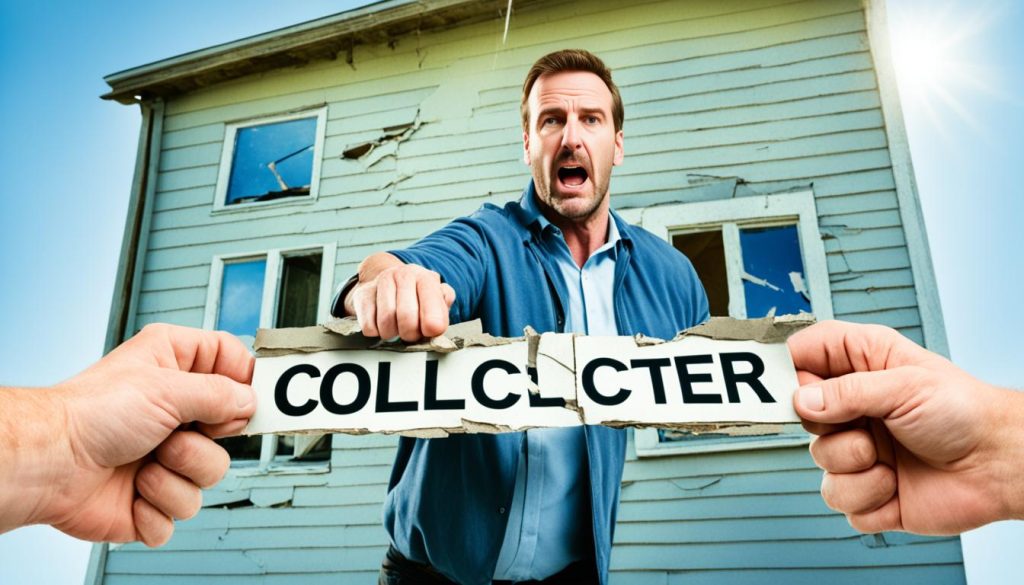
Dealing with a forced sale in the UK is complex. Homeowners in this situation must understand the legal and financial sides. Consulting with experts can help protect their interests and find the best way forward.
Who Pays Legal Fees in Forced House Sale?
When someone can’t keep up with mortgage payments, the bank might sell their house. This forced sale, also called repossession or foreclosure, raises questions about legal fees. Both the homeowner and the lender worry about who will pay.
In the UK, the rule is clear: the party causing the sale handles the legal costs. Usually, this means the lender pays their own legal bills. Yet, depending on the situation, the homeowner might share these costs too.
Lender’s Legal Costs in Foreclosure Proceedings
Banks and building societies have to pay for different legal services during foreclosure. These include fees for:
- Serving legal notices and getting court orders
- Hiring legal representatives like solicitors and barristers
- Valuing the property and auctioning it
- Any costs to remove the homeowner from the property
Homeowner’s Potential Liability for Legal Fees
The homeowner could be responsible for some of the lender’s legal fees. This is the case if the homeowner:
- Fights the forced sale in court, causing more legal fees
- Doesn’t reply to legal notices or help the lender, making costs go up
- Stays in the house after the repossession, forcing an eviction
For homeowners in this situation, getting legal advice is crucial. This helps them know their legal rights and duties. It can prevent the surprise of having to pay extra legal bills.
| Responsible Party | Legal Fees Covered |
|---|---|
| Lender |
|
| Homeowner |
|
Knowing who is responsible for legal costs prepares those facing a forced sale. It helps in making smart choices during the process.

How Much is a Court Order to Force Sale of House?
Getting a court order to sell a home in the UK isn’t easy or cheap. The total cost depends on various factors. These include your case details, legal costs, and how long the process takes.
The key costs of a forced sale order are:
- Legal fees for both the lender or creditor and the home’s owner
- Fees for filing in court
- Charges for the home’s valuation and survey
- Extra costs if the owner doesn’t follow the court’s order
Legal costs are a big part of it, often between £1,000 and £5,000 or more. The total can go up with the use of lawyers and experts. Adding the court’s fees costs hundreds more on top of that.
The whole process might span several months. This includes the time from starting the case to the court’s final decision. Plus, costs like interest and penalties could keep growing during this time.
These prices and timelines are just estimates. Your actual costs and time could be different. To get a clearer picture, talking to a legal expert is a good idea.
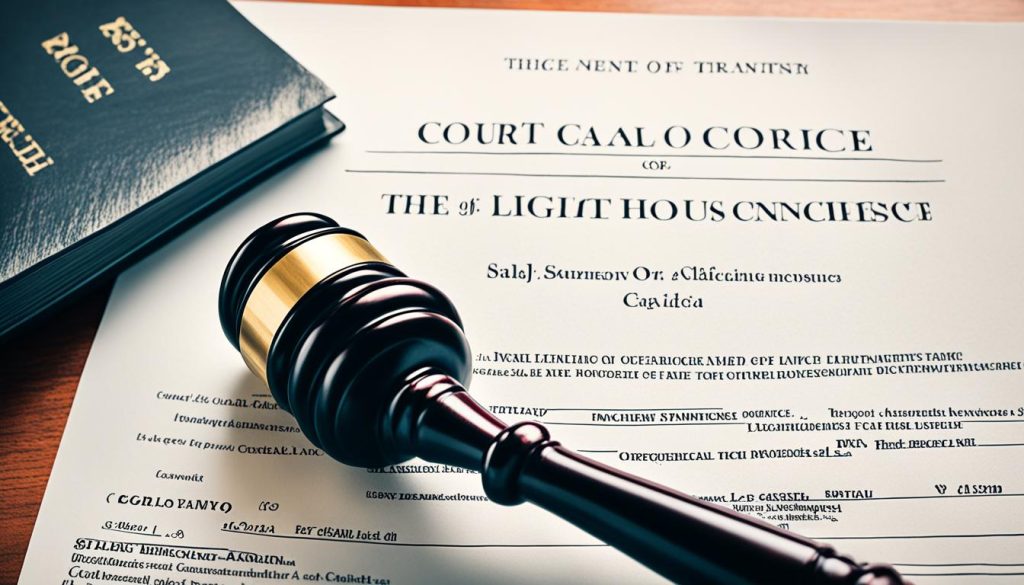
Lender’s Legal Fees in Foreclosure Proceedings
When homeowners start missing mortgage payments, the lender might kick off foreclosure. This allows them to get back the money owed. It involves paying different legal fees and costs. Knowing these costs is crucial for lenders and homeowners dealing with forced property sales in the UK.
Mortgage Arrears and Repossession Costs
Lenders pay up on many costs during the foreclosure. This includes fees for sending demand letters, starting legal action, and finally taking the property back. They also pay for checking the property, getting it valued, and making it safe after repossession.
Bankruptcy and Debt Recovery Expenses
Sometimes, the foreclosure might lead to bankruptcy actions or other ways to recover debt. The lenders hire lawyers to deal with the bankruptcy laws. They chase after any money owed. These legal costs mount up, cutting into the money the lender might get from selling the property.
Lenders also spend on foreclosure auctions where the home gets sold to the highest bidder. They pay for the auction itself, and for any advertising needed to get people to bid. These costs push up the legal bill for the lender even more.

The legal costs for lenders in foreclosures can get very high. They should carefully think about these costs before starting a forced sale. Homeowners in financial trouble should also know about these costs. They can affect how things turn out in the end.
Homeowner’s Obligations and Rights
In the UK, if your house is at risk of being sold, it’s vital to know your responsibilities and rights. Being aware of these can make a big difference in keeping your home.
Challenging Forced Sale Orders
Owners can fight against a court’s decision to sell their home. They need to prove they can fix their money problems or show selling isn’t the best move. Getting legal advice can help win this fight.
Eviction Laws and Regulations
In the UK, rules about being forced out are important in house sales. Homeowners have rights, like getting enough warning and a chance to argue against leaving. Knowing these rights can help slow down or stop being kicked out of their homes.
| Homeowner Obligations | Homeowner Rights |
|---|---|
|
|
Knowing what you need to do and what you can do helps homeowners. They can face forced sales in the UK wisely. They can aim for the best outcome for their situation.
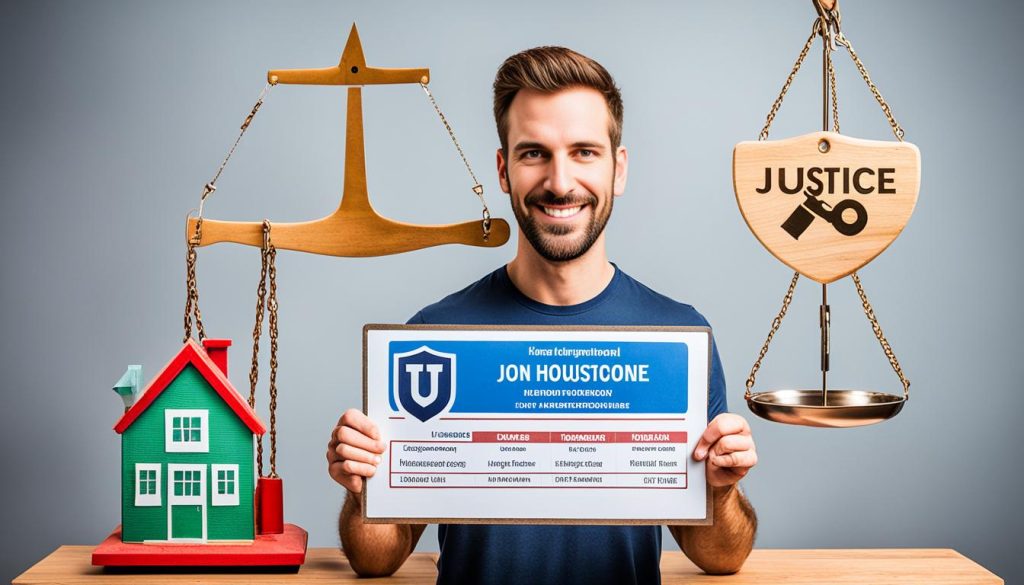
Conclusion
When a house must be sold against the owner’s wish in the UK, legal fees become a key concern. The costs of legal help in these cases can differ a lot. They depend on why the house is being sold. This is especially tough for people going through a breakup or facing efforts to stop the sale. These money matters add to their stress.
Some legal costs are the lender’s duty, such as those related to late payments and collecting debts. But, homeowners still have to pay for some of the legal work. This includes fighting the sale or understanding eviction laws. Homeowners need to know their rights. This way, they can make choices that cut down on costs during this hard time.
Figuring out who pays for legal help in these cases is a tricky balance. It’s about what’s fair for both the lenders and the homeowners. Getting the right advice and staying up-to-date can help. It can guide people through the selling process. And help them reach a good outcome, whether selling the house or finding another way that keeps them secure financially.
FAQ
What are the Common Reasons for Forced Property Sales?
Many things can lead to a forced house sale in the UK. These include missing mortgage payments, going bankrupt, or facing other big financial troubles. The aim is to get back the money owed by selling the house.
What Legal Fees Do Lenders Incur in Foreclosure Proceedings?
Lenders have to pay for different legal expenses when a house is being sold. This includes mortgage debts, repossession, and the selling process costs. These fees are usually paid from the sale’s earnings.
What are the Homeowner’s Obligations and Rights in a Forced House Sale?
Homeowners in a forced sale should help with the legal work and let people see the house. But, they can also try to stop the sale and avoid eviction. They should know and use their rights according to UK laws.

